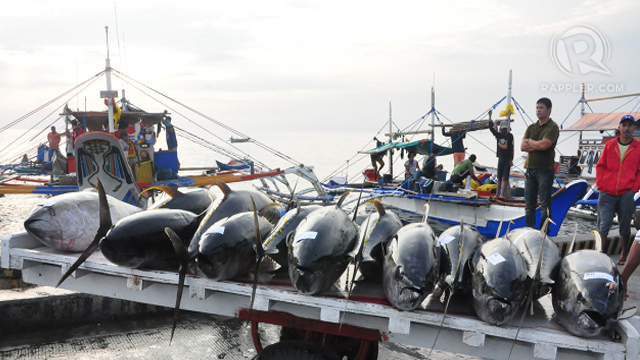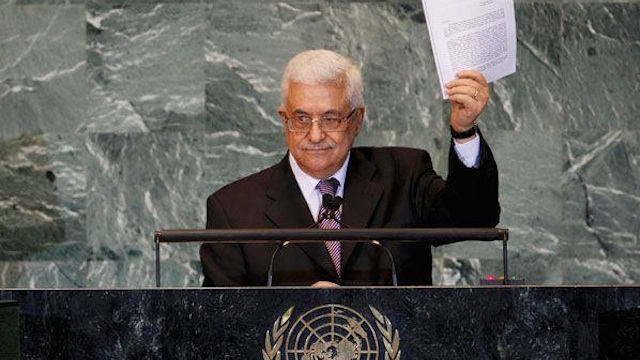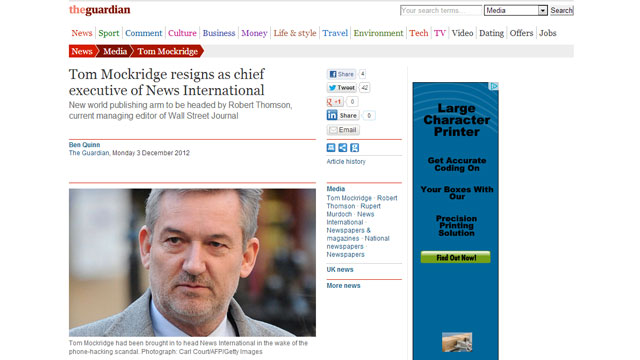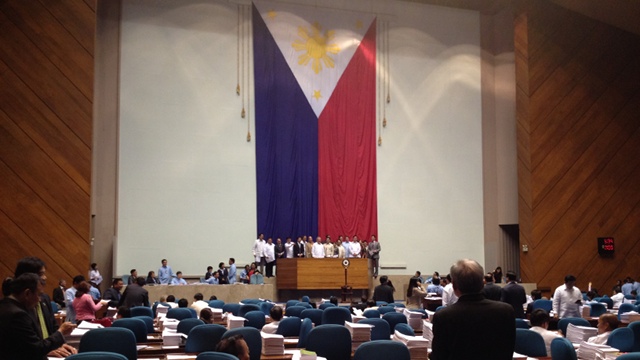SUMMARY
This is AI generated summarization, which may have errors. For context, always refer to the full article.
- 2012’s strongest typhoon
 Take precautionary measures and prepare for floods and landslides as “powerful” Typhoon “Pablo” (international codename: Bopha) brings heavy to intense rainfall (20-30 millimeters per hour) in at least 18 Mindanao and Visayas provinces. These were the warnings of disaster and weather officials in the Philippines as Pablo, which has a 700 km diameter, enters the Philippine area of responsibility on December 3. It is the 16th and probably the last typhoon to affect the country in 2012, but it may also be the strongest to hit this 2012. A total of 19 typhoons struck in 2011, resulting in over 1,500 deaths and affecting nearly 10% of the total population, the officials said.
Take precautionary measures and prepare for floods and landslides as “powerful” Typhoon “Pablo” (international codename: Bopha) brings heavy to intense rainfall (20-30 millimeters per hour) in at least 18 Mindanao and Visayas provinces. These were the warnings of disaster and weather officials in the Philippines as Pablo, which has a 700 km diameter, enters the Philippine area of responsibility on December 3. It is the 16th and probably the last typhoon to affect the country in 2012, but it may also be the strongest to hit this 2012. A total of 19 typhoons struck in 2011, resulting in over 1,500 deaths and affecting nearly 10% of the total population, the officials said.
Read more about the typhoon’s trajectory and provinces affected on Rappler.
Check Rappler’s WeatherAlert page.
Follow Rappler’s live blog for updates and news across the web. - Pacific tuna in danger; must reduce catch by 30%
 Conservation efforts in one of the world’s biggest sources of tuna may again subject fishing industries in Asia and the Pacific through short-term pain. At the ongoing 5-day Manila conference of the Western and Central Pacific Fisheries Commission (WCPFC), experts said depleting tuna stocks must be addressed by reducing the 151,000 tonnes annual catch of the vulnerable bigeye species by 30%. Because tuna is a migratory species that moves from one country’s territory to another, cooperation is crucial to sustaining the resource.
Conservation efforts in one of the world’s biggest sources of tuna may again subject fishing industries in Asia and the Pacific through short-term pain. At the ongoing 5-day Manila conference of the Western and Central Pacific Fisheries Commission (WCPFC), experts said depleting tuna stocks must be addressed by reducing the 151,000 tonnes annual catch of the vulnerable bigeye species by 30%. Because tuna is a migratory species that moves from one country’s territory to another, cooperation is crucial to sustaining the resource.
Read more on Rappler. - Showdown on Reproductive Health billAt a lunch with lawmakers on December 3 in Malacañang, President Benigno Aquino III is expected to subtly impose his position on the controversial and long-delayed Reproductive Health (RH) bill, which seeks to provide women, especially the poor, access to different forms of contraception so they can plan the size of their families. He wants the bill to move forward at the House of Representatives before session adjourns on December 21 for the holiday, and before they become preoccupied with the campaign for the mid-term elections in May 2013. Various political parties have said they don’t have a stand on the bill, which the powerful Catholic church is vigorously opposing.
Read more on Rappler. - Pope joins Twitter-world
 Pope Benedict XVI, 85, will officially launch his own Twitter account to communicate short messages on faith and to inspire Catholic followers online. According to CNN, the pope will compose the tweets himself, press the send button for the first tweet, but others will send the tweets on his behalf in the succeeding posts.
Pope Benedict XVI, 85, will officially launch his own Twitter account to communicate short messages on faith and to inspire Catholic followers online. According to CNN, the pope will compose the tweets himself, press the send button for the first tweet, but others will send the tweets on his behalf in the succeeding posts.
Behind this move are Greg Burke, a former journalist now working at the Vatican, and Claire Díaz-Ortiz, who heads social innovation at Twitter and has been influential in getting religious leaders to join the social networking site. The Dalia Lama (@DalaiLama), Rick Warren (@RickWarren), Joel Osteen (@JoelOsteen), and scores of other religious leaders utilize the site to spread their messages.
Read more on CNN. - Top world trade parner: China, not US
 China, in just 5 years, has surpassed the United States as the top trading partner for much of the world, according to an Associated Press analysis of trade data. In 2006, the US was still the top trading partner for 127 countries, and China just 70. The two traded places in 2011: 124 countries for China, 76 for the US. In the most abrupt global shift of its kind since World War II, the trend is changing the way people live and do business. The findings show how fast China has ascended to challenge America’s century-old status as the globe’s dominant trader, a change that is gradually translating into political influence.
China, in just 5 years, has surpassed the United States as the top trading partner for much of the world, according to an Associated Press analysis of trade data. In 2006, the US was still the top trading partner for 127 countries, and China just 70. The two traded places in 2011: 124 countries for China, 76 for the US. In the most abrupt global shift of its kind since World War II, the trend is changing the way people live and do business. The findings show how fast China has ascended to challenge America’s century-old status as the globe’s dominant trader, a change that is gradually translating into political influence.
Read more on Associated Press. - One of Japan’s longest road tunnels collapses
 When concrete ceiling panels crashed down inside one of Japan’s longest road tunnels on December 3, killing at least 9, safety issues naturally arose. Witnesses spoke of terrifying scenes as at least one vehicle burst into flames inside the nearly 5-kilometer tunnel, which passes through hills near Mount Fuji 80 kilometers west of Tokyo. Questions mounted about whether decaying ceiling supports caused the disaster. An official from highways operator NEXCO said material degradation was a possibility, adding the risk of further collapse remained although the ceiling had undergone its regular 5-yearly inspection in September this year. Earthquakes are common in Japan, though none was reported in the area at the time of the collapse.
When concrete ceiling panels crashed down inside one of Japan’s longest road tunnels on December 3, killing at least 9, safety issues naturally arose. Witnesses spoke of terrifying scenes as at least one vehicle burst into flames inside the nearly 5-kilometer tunnel, which passes through hills near Mount Fuji 80 kilometers west of Tokyo. Questions mounted about whether decaying ceiling supports caused the disaster. An official from highways operator NEXCO said material degradation was a possibility, adding the risk of further collapse remained although the ceiling had undergone its regular 5-yearly inspection in September this year. Earthquakes are common in Japan, though none was reported in the area at the time of the collapse.
Read more on Rappler. - Changing face of HIV/AIDS in PH
 AIDS infection does not discriminate, shows the Philippine experience. Early faces of AIDS included notorious Sarah Jane Salazar and Dolzura Cortez who were sex workers infected while on the job. Statistics on infections boomed starting in 2000 among overseas contract workers who were required to undergo HIV tests before deployment or during contract renewals. In 2008, the health department declared a shift in the mode of predominant transmission–from heterosexual to homosexual–as the increases of infection among men having sex with men (MSM), especially aged 24 to 35, were tremendously in excess of the expected trend. The coming out of film director’s son Wanggo Gallagaa also occurred with the beginning of the shifting trend to a different face to HIV–that of young professionals who are articulate and who can assert their social and economic standing in a society that finds it difficult to shake off stigma on persons living with HIV.
AIDS infection does not discriminate, shows the Philippine experience. Early faces of AIDS included notorious Sarah Jane Salazar and Dolzura Cortez who were sex workers infected while on the job. Statistics on infections boomed starting in 2000 among overseas contract workers who were required to undergo HIV tests before deployment or during contract renewals. In 2008, the health department declared a shift in the mode of predominant transmission–from heterosexual to homosexual–as the increases of infection among men having sex with men (MSM), especially aged 24 to 35, were tremendously in excess of the expected trend. The coming out of film director’s son Wanggo Gallagaa also occurred with the beginning of the shifting trend to a different face to HIV–that of young professionals who are articulate and who can assert their social and economic standing in a society that finds it difficult to shake off stigma on persons living with HIV.
Read more on Rappler - Abbas cheered as Palestine becomes a state
 “Yes, now we have a state,” the victorious Palestinian president Mahmud Abbas told cheering crowds when he returned to the West Bank on December 2 after winning upgraded UN status for the Palestinians. The United Nations General Assembly granted the Palestinians non-member state observer status in a 138-9 vote after the country’s 2011 bid stalled in the Security Council, where the veto-wielding United States, Israel and other countries vehemently opposed it. The move gives the Palestinians access to a range of international institutions, including potentially the International Criminal Court, and raises their international profile after years of stalled peace talks with Israel.
“Yes, now we have a state,” the victorious Palestinian president Mahmud Abbas told cheering crowds when he returned to the West Bank on December 2 after winning upgraded UN status for the Palestinians. The United Nations General Assembly granted the Palestinians non-member state observer status in a 138-9 vote after the country’s 2011 bid stalled in the Security Council, where the veto-wielding United States, Israel and other countries vehemently opposed it. The move gives the Palestinians access to a range of international institutions, including potentially the International Criminal Court, and raises their international profile after years of stalled peace talks with Israel.
Read more on Rappler. - Another News Corp top exec resigns
 The “departure list” at News Corp. just got longer. The resignation of Tom Mockridge, CEO of News International, the UK newspaper unit of beleaguered Rupert Murdoch’s media empire, was announced December 3, over a year after he replaced Rebekah Brooks in July 2011. Brooks resigned after another News International newspaper, the now closed News of the World, became embroiled in the phone-hacking debacle. Mockridge, a New Zealander, worked with Murdoch for nearly 22 years. He was earlier considered a shoo-in to lead the new worldwide publishing arm when the company divides in half in 2013, but that job will likely be given to Robert Thomson, the current managing editor of the Wall Street Journal.
The “departure list” at News Corp. just got longer. The resignation of Tom Mockridge, CEO of News International, the UK newspaper unit of beleaguered Rupert Murdoch’s media empire, was announced December 3, over a year after he replaced Rebekah Brooks in July 2011. Brooks resigned after another News International newspaper, the now closed News of the World, became embroiled in the phone-hacking debacle. Mockridge, a New Zealander, worked with Murdoch for nearly 22 years. He was earlier considered a shoo-in to lead the new worldwide publishing arm when the company divides in half in 2013, but that job will likely be given to Robert Thomson, the current managing editor of the Wall Street Journal.
Read more on The Guardian and BBC. - Goodbye, India’s ‘dancing bears’
.jpg) Conservationists claimed they were successful in ending the Indian industry of street-dancing sloth bears, a tradition of the Muslim Kalandar tribe that dates back to the 13th century. The World Society for the Protection of Animals (WSPA) and India-based Wildlife SOS, which runs sanctuaries for bears, have also declared an end to the practice in the last few months–40 years after a government ban in 1972. Behind this is a long-term effort of providing alternative livelihood and other financial incentives to the tribesmen who were used to buying bear cubs from poachers, then hammering a heated iron rod through the cubs’ sensitive snouts to remove the animal’s teeth and claws. The bear trainer threaded a rope through its snout and then headed for the streets where onlookers would pay a few rupees for a show in which the bear would sway and jump around.
Conservationists claimed they were successful in ending the Indian industry of street-dancing sloth bears, a tradition of the Muslim Kalandar tribe that dates back to the 13th century. The World Society for the Protection of Animals (WSPA) and India-based Wildlife SOS, which runs sanctuaries for bears, have also declared an end to the practice in the last few months–40 years after a government ban in 1972. Behind this is a long-term effort of providing alternative livelihood and other financial incentives to the tribesmen who were used to buying bear cubs from poachers, then hammering a heated iron rod through the cubs’ sensitive snouts to remove the animal’s teeth and claws. The bear trainer threaded a rope through its snout and then headed for the streets where onlookers would pay a few rupees for a show in which the bear would sway and jump around.
Read more on Rappler.
Add a comment
How does this make you feel?
Loading

There are no comments yet. Add your comment to start the conversation.